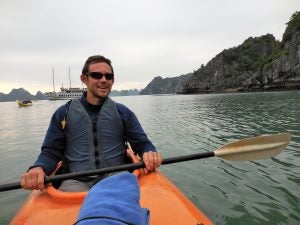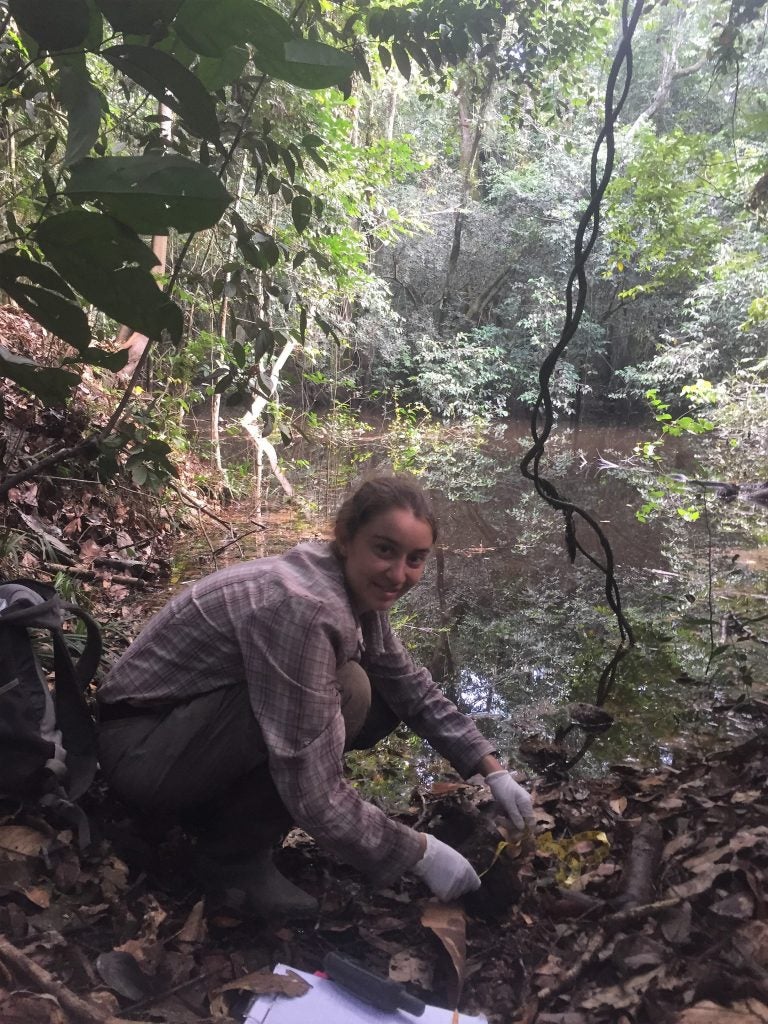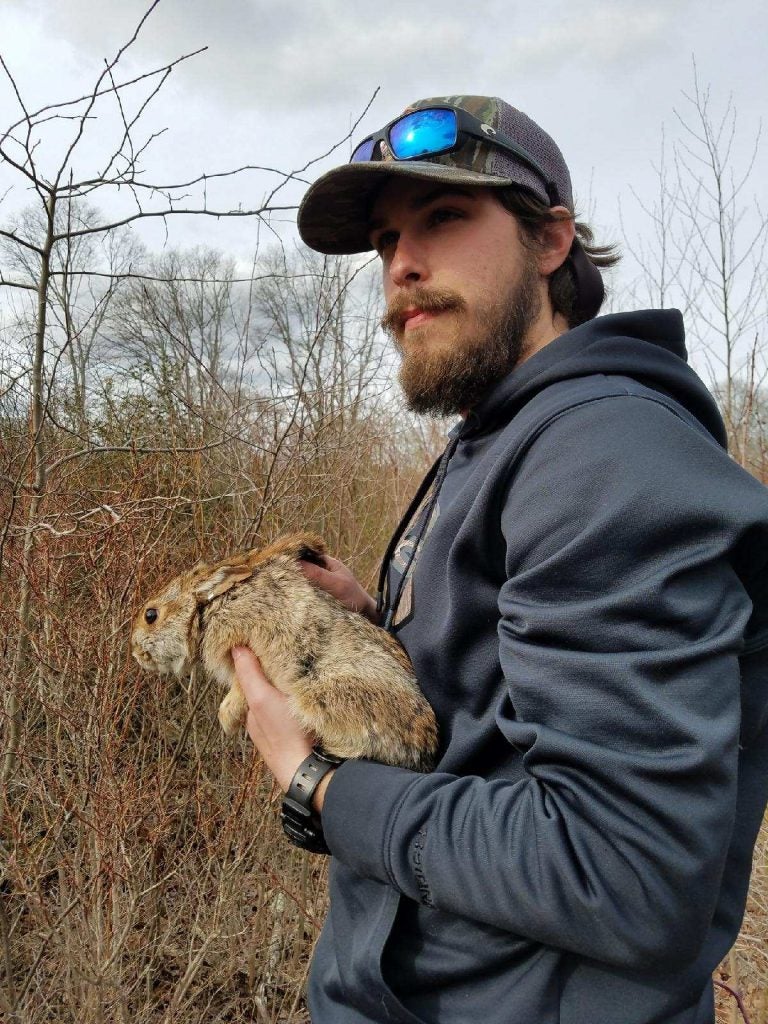People
PI: Brian D. Gerber
Interests: I enjoy focusing on questions about animal behavioral, and population and community dynamics. I am especially interested in the ecology and conservation of rare animals. I spend a good deal of time developing, refining, and clarifying statistical approaches to improve scientific inference and prediction. I am also interested in developing efficient monitoring strategies for species that is integrated within a decision-making framework.
Collaborators: A cornerstone of my research is collaboration. I work with colleagues from many backgrounds and disciplines, including federal and state agencies, national and international non-government organizations, and environmental consulting firms.
Motivation: Science is fun. Conservation is fun. Science and conservation are necessary for learning and improving logical/empirical based-decision making to support the vastness of Earth’s biodiversity.
Appointment: Assistant Professor, University of Rhode Island, Department of Natural Resources Science
Contact: Brian Gerber, 109 Coastal Institute, 1 Green House Road, Kingston, RI 02881.
bgerber ‘at’ uri ‘dot’ edu (bgerber@uri.edu)
Education:
- Postdoctoral Researcher, Colorado State University, USGS Cooperative Fish and Wildlife Research Unit, Fish, Wildlife, and Conservation Biology
- Ph.D., Colorado State University, USGS Cooperative Fish and Wildlife Research Unit, Fish, Wildlife, and Conservation Biology
- M.S., Virginia Tech, Department of Fish and Wildlife Conservation
- B.S., University of Massachusetts, Fisheries and Wildlife Conservation
Research Links
URI Courses:
- Quantitative Wildlife Ecology (NRS 402)
- The Biodiversity Crisis (NRS 330G; Grand Challenge)
- Quantitative Techniques in Natural Resource Research (NRS 520)
- Advanced Conservation Biology (BES 532)
Graduate Students
Laken Ganoe
Research Topic: Fisher Movement, Resource Selection, and Population Monitoring
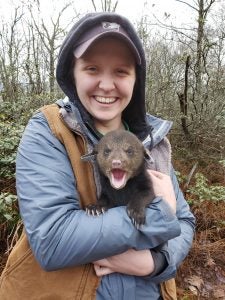
Laken is a PhD student researching fine-scale movement, resource selection and population monitoring of fisher (Pekania pennanti) in Rhode Island. She received her M.S. in Wildlife and Fisheries Science from the Pennsylvania State University in 2019 and her B.S. in Environmental Science: Wildlife and Fisheries Science from California University of Pennsylvania in 2017. She is interested in applied wildlife research focusing on furbearer species conservation, as well as species distributions in response to human disturbance and encroachment on natural ecosystems. She is also broadly interested in inter- and intraspecific interactions and ecosystem dynamics. She has worked with a diversity of taxa including muskrats, fisher, Delmarva fox squirrels, black bear, Pacific marten, and songbirds.
Personal Website: www.lakenganoe.com
Erin Wampole
(Personal Website: https://erinwampole.weebly.com/)
Research Topic: Madagascar Carnivore Ecology
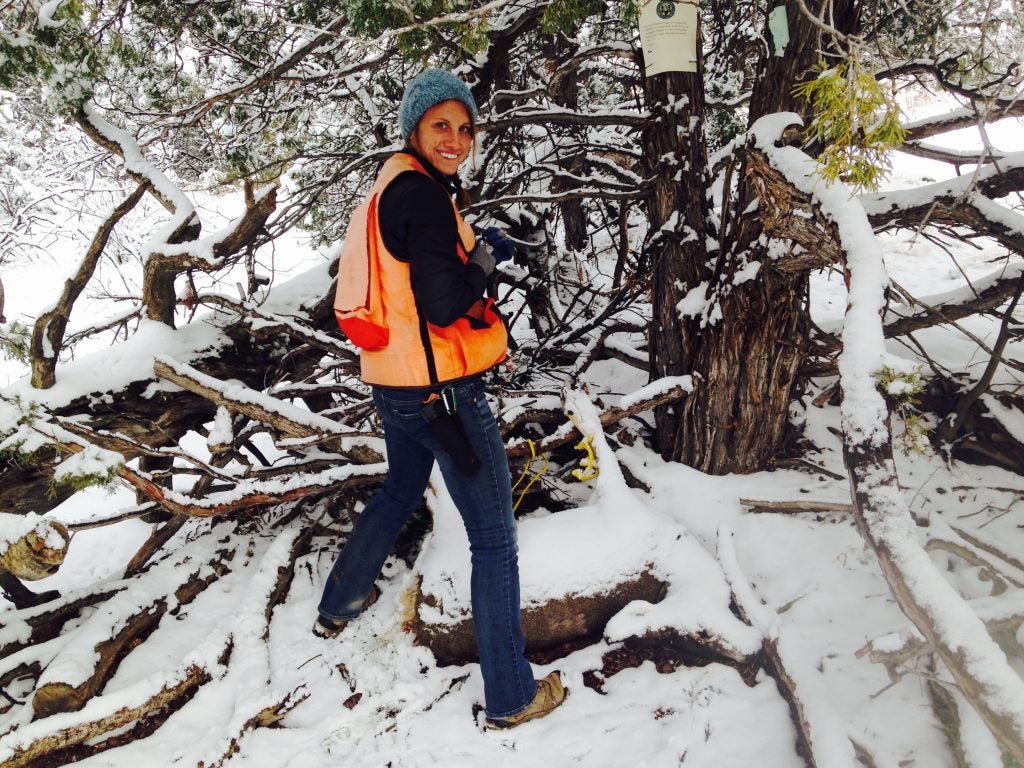 Erin is broadly interested in carnivore ecology, wildlife conservation, and community dynamics. She received her undergraduate degree from Humboldt State University in Wildlife Management and Conservation. Before joining the lab, she worked on a diverse set of projects in over 5 countries on a range of species, including African lions, African elephants, cougars, coyotes, mule deer, big horn sheep, bison, polar bears, and arctic waterfowl.
Erin is broadly interested in carnivore ecology, wildlife conservation, and community dynamics. She received her undergraduate degree from Humboldt State University in Wildlife Management and Conservation. Before joining the lab, she worked on a diverse set of projects in over 5 countries on a range of species, including African lions, African elephants, cougars, coyotes, mule deer, big horn sheep, bison, polar bears, and arctic waterfowl.
Juliana Masseloux
Research Topic: Tropical mammal community dynamics
Juliana’s research interests and species are broad and diverse, but usually with an emphasis on ecology and conservation. She has worked across national and international boundaries with lizards in Chile, Asian elephants in Thailand, Trout in Nevada, large carnivores in Kenya, Cape buffalo in South Africa, Greater Sage Grouse in the Sierra Nevada’s, and African forest elephants in Gabon. She believes in the importance of research and conservation measures supported by and of benefit to indigenous peoples in close contact (and often conflict) with local wildlife. Small carnivores in particular are often undervalued for their critical ecosystem services in seed dispersal and rodent control, and increasingly threatened by habitat fragmentation, unmanaged hunting, and the wildlife trade. Her master’s thesis will focus on community-level occupancy dynamics of understudied tropical mammals in Southeast Asia.
Dylan Ferreira
Research Topic: White-tailed deer Population Ecology & Management
Dylan is managing white-tailed deer and New England cottontails currently with RI DEM Division of Fish and Wildlife. He is interested in population dynamics of the deer population of RI and how statistical modeling can better inform management decisions. He received his undergraduate degree from University of Massachusetts Amherst in Natural Resource Conservation concentrating in Wildlife Ecology. He has worked with a variety of species (New England cottontail, white-tailed deer, waterfowl species, pine marten, lynx, moose, and snowshoe hare) across the northeast (MA, RI, CT, NY, NH, VT, MI, and Quebec).
Kimberly Rivera
Personal Website: https://kimberlyriveraswildlife.weebly.com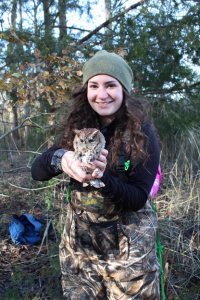
Research Topic: Human-Wildlife Conflict and Anthropogenic Impacts on Carnivores
Kim has worked in a variety of ecological systems and her current work as a masters student is focused on understanding the ecological and societal relationship between humans on carnivores. She specifically investigating the impact of human disturbance on fosa occurrence in Madagascar and coyotes in Rhode Island. She is also collecting information on the knowledge, beliefs, and feelings about coyotes in Rhode Island.
Check out her survey with this link.
Kim received her BS in environmental science from the University of Delaware in 2016. She is broadly interested in human-wildlife conflict, especially in communities which face socio-economic hardships. She enjoys working with diverse taxa and exploring new places across the US and globe.
Undergraduate Students
Ruby Nguyen
Ruby has contributed to several research projects, including a study on wildlife usage of forest rock walls in New England and a nation-wide mammalian survey using camera traps (Snapshot USA). Most recently she is conducting experiments of mammal response to novel stimuli in urban and rural settings to evaluate animal boldness.
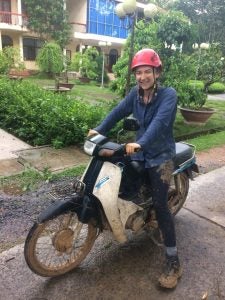 Jess Burr (Lab Manager)
Jess Burr (Lab Manager)
Jess is a senior Wildlife and Conservation Biology major at URI. She is passionate about reducing the negative impacts of humans on the Earth through direct conservation action. She has contributed to several research projects, including a study on wildlife usage of forest rock walls in New England and a nation-wide mammalian survey using camera traps (Snapshot USA). She was also a research field technician in Vietnam where she developed skills in sampling terrestrial and arboreal mammal communities to investigate impacts of humans. After graduation, Jess plans on contributing to conservation and restoration projects as she travels around the U.S. in a converted van.
Kylie Rezendes
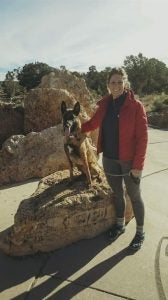 Kylie is a Wildlife and Conservation Biology major at URI. She finds interest in studying the effects of anthropogenic pressures, such as fragmented landscapes on “carnivore-prey” interactions. Kylie has recently developed camera trapping skills by contributing to a nation-wide mammalian survey (Snapshot USA). Most recently she is conducting experiments of mammal response to novel stimuli in urban and rural settings to evaluate animal boldness. In her free time she volunteers as a field technician collecting data for an ongoing bobcat population study and monitoring of eastern bluebirds during nesting season.
Kylie is a Wildlife and Conservation Biology major at URI. She finds interest in studying the effects of anthropogenic pressures, such as fragmented landscapes on “carnivore-prey” interactions. Kylie has recently developed camera trapping skills by contributing to a nation-wide mammalian survey (Snapshot USA). Most recently she is conducting experiments of mammal response to novel stimuli in urban and rural settings to evaluate animal boldness. In her free time she volunteers as a field technician collecting data for an ongoing bobcat population study and monitoring of eastern bluebirds during nesting season.
 Home
Home Browse
Browse Close
Close Events
Events Maps
Maps Email
Email Brightspace
Brightspace eCampus
eCampus



